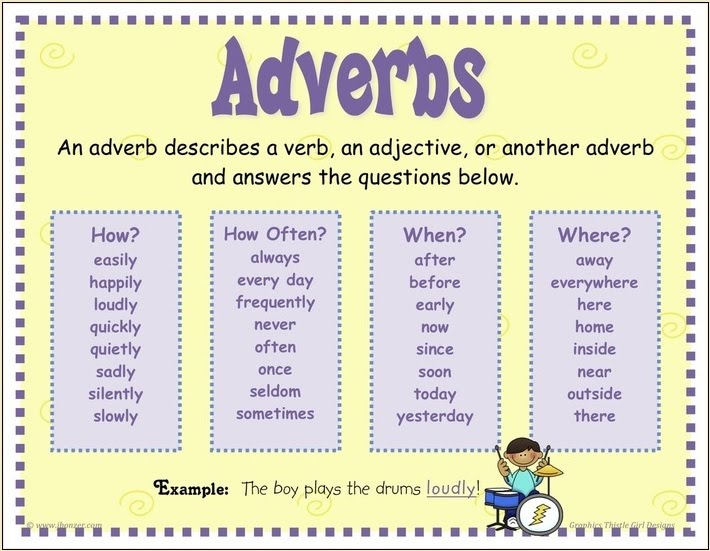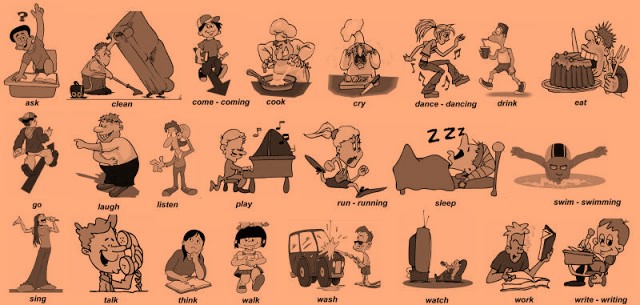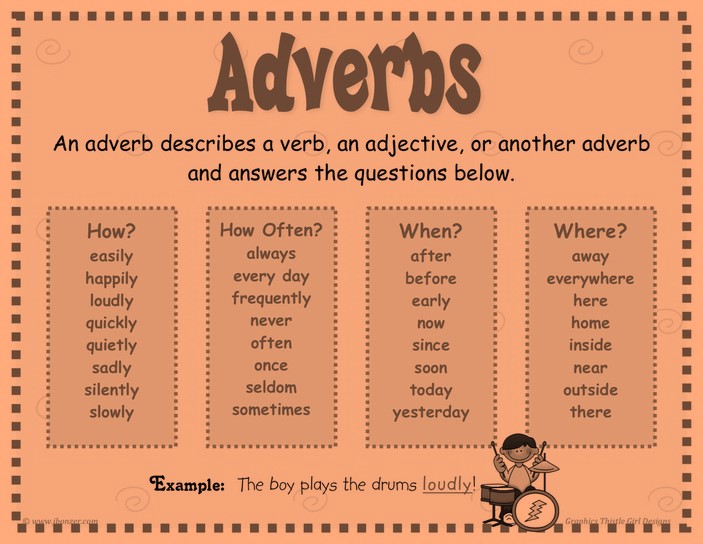
Definition of Verb

A verb is a word that describes an activity, action, state or existence. For e.g:
Types of Verb
Naman is reading a novel.
She plays football.
The baby is crying loudly.
He walks very fast.
Rahul did the job perfectly.
They have played for six hours.
Conjugation of Verb
Conjugation of a verb includes three principle form of the verb. They are present tense (original), past tense, past participle tense. Few examples are listed below.
|
Present |
Past |
Past Participle |
|
Add
Bore
Become
Bend
Blow
Do |
Added
Bored
Became
Bent
Blew
Did |
Added
Bored
Became
Bent
Blown
Done |
Definition of Adverb

An adverb is a word that is used to modify a verb, an adjective or an adverb. For e.g:
Types of Adverbs
Examples
I will go again.
He frequently gets faint.
Examples
God is everywhere.
Go inside and close the gate.
Examples
She speaks German fluently.
Rohan is working hard to stay fit.
Examples: bit, little, least, slightly, etc.
Examples: fairly, sufficiently, rather, etc.
Examples: extremely, quite, too, etc.
Examples
He has gained excess weight. So he started doing yoga.
Examples
Why are you late?
How many students are present today?
Example
I know the reason why he stole my things.
This is the place where we first met.
Recap
Yearlong program for Olympiads preparation & to build necessary skills for future.
Explore More
Time to mark your calendar with the upcoming Olympiads exam schedule.
Explore More
Take your Olympiad preparation to next-level by taking LIVE Classes.
Explore More
Assess your performance by taking topic-wise and full length mock tests.
Explore More
Online tuitions for international compeitions like SASMO, SEAMO, etc for Grades 1-11.
Explore More